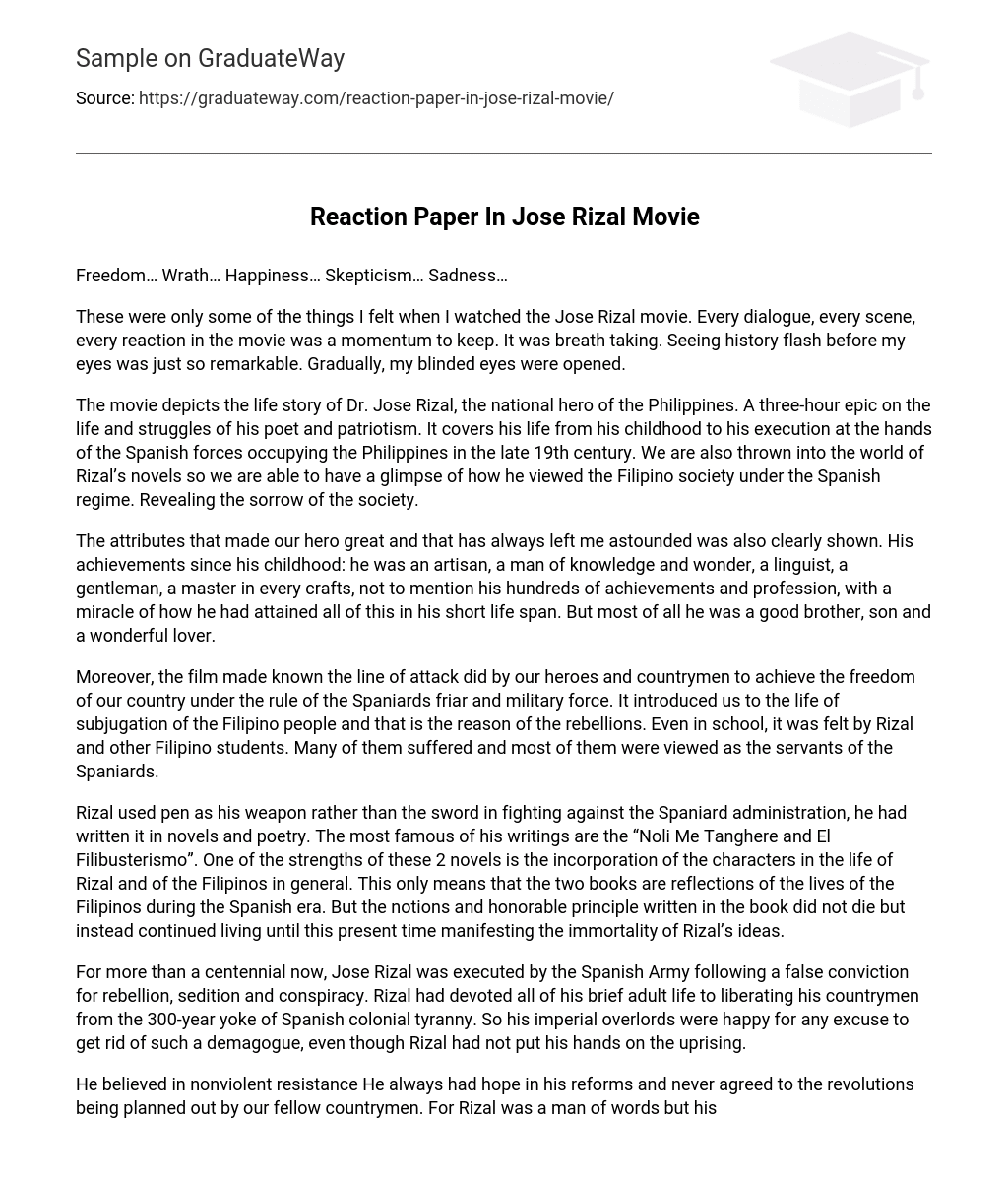Freedom… Wrath… Happiness… Skepticism… Sadness… These were only some of the things I felt when I watched the Jose Rizal movie. Every dialogue, every scene, every reaction in the movie was a momentum to keep. It was breath taking. Seeing history flash before my eyes was just so remarkable. Gradually, my blinded eyes were opened.
The movie depicts the life story of Dr. Jose Rizal, the national hero of the Philippines. A three-hour epic on the life and struggles of his poet and patriotism. It covers his life from his childhood to his execution at the hands of the Spanish forces occupying the Philippines in the late 19th century. We are also thrown into the world of Rizal’s novels so we are able to have a glimpse of how he viewed the Filipino society under the Spanish regime. Revealing the sorrow of the society.
The attributes that made our hero great and that has always left me astounded was also clearly shown. His achievements since his childhood: he was an artisan, a man of knowledge and wonder, a linguist, a gentleman, a master in every crafts, not to mention his hundreds of achievements and profession, with a miracle of how he had attained all of this in his short life span. But most of all he was a good brother, son and a wonderful lover.
Moreover, the film made known the line of attack did by our heroes and countrymen to achieve the freedom of our country under the rule of the Spaniards friar and military force. It introduced us to the life of subjugation of the Filipino people and that is the reason of the rebellions. Even in school, it was felt by Rizal and other Filipino students. Many of them suffered and most of them were viewed as the servants of the Spaniards.
Rizal used pen as his weapon rather than the sword in fighting against the Spaniard administration, he had written it in novels and poetry. The most famous of his writings are the “Noli Me Tanghere and El Filibusterismo”. One of the strengths of these 2 novels is the incorporation of the characters in the life of Rizal and of the Filipinos in general. This only means that the two books are reflections of the lives of the Filipinos during the Spanish era. But the notions and honorable principle written in the book did not die but instead continued living until this present time manifesting the immortality of Rizal’s ideas.
For more than a centennial now, Jose Rizal was executed by the Spanish Army following a false conviction for rebellion, sedition and conspiracy. Rizal had devoted all of his brief adult life to liberating his countrymen from the 300-year yoke of Spanish colonial tyranny. So his imperial overlords were happy for any excuse to get rid of such a demagogue, even though Rizal had not put his hands on the uprising.
He believed in nonviolent resistance He always had hope in his reforms and never agreed to the revolutions being planned out by our fellow countrymen. For Rizal was a man of words but his were so much more combustible that he gave birth to the Philippine Revolution with even more force than a gun or a sword can do.
I specifically love the part where Rizal fell facing the sky, having his last breathe seeing the beautiful sunrise. A scene telling us that he did not die in vain, that he didn’t die for nothing, that he didn’t die defeated. Actually, he was victorious. It was his fire that lighted every Filipino heart to aim for Philippine independence. He can be compared to a meteor of history. Meteors flash in the sky and light the world. And in the process they consume themselves leaving an impression in the integity of mortal men.





